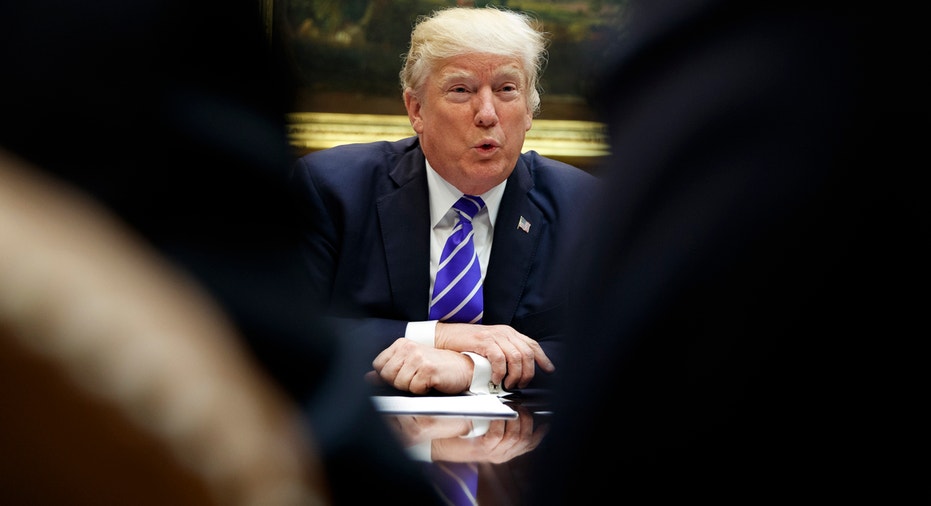Trump slams new bipartisan health care deal: What's in it?

Following negotiations that lasted for more than a month, Sen. Lamar Alexander (R-Tenn.) and Sen. Patty Murray (D-Wash.) have reached a deal to stabilize the insurance markets, just two weeks before the ObamaCare open enrollment period is set to begin.
The short-term deal was based on bipartisan hearings before the Senate Health, Education, Labor and Pensions Committee, and engaged nearly 60 senators, according to Sen. Alexander.
While President Donald Trump initially indicated support for a deal on Tuesday, by Wednesday the president said he would not get behind any plan that proposes a bailout to insurance companies.
I am supportive of Lamar as a person & also of the process, but I can never support bailing out ins co's who have made a fortune w/ O'Care.
— Donald J. Trump (@realDonaldTrump) October 18, 2017
Some other members of the GOP are criticizing the deal because they are still pushing for a full repeal and replace measure.
Here’s a look at some of the main pieces of the Alexander-Murray proposal and how it would impact the health care landscape.
Subsidy payments
Key cost-sharing reduction (CSR) subsidy payments, or reimbursements to insurers for discounted care provided to low-income individuals, would be funded through 2019 under the plan. Insurers were scheduled to receive about $10 billion in subsidy payments for 2018, according to Reuters, before President Trump eliminated the payments altogether last week. Trump’s decision, as previously reported by FOX Business, was largely seen as a negotiating tactic to force lawmakers to come to the table.
The CSR subsidies have been a main focus for not only President Trump, but also other members of the GOP – including Sen. Rand Paul (R-Ky.) who has also told FOX Business these payments amount to a bailout for insurance companies. With or without the payments, however, insurance companies are required to provide plans as if they are receiving the subsidies. As a result, some companies hiked premiums in anticipation that the president might eliminate them for the coming year.
More flexibility to states
In a nod to Republicans, the proposal would grant more flexibility for individuals to buy less comprehensive health insurance plans. It would expand the availability of so-called “catastrophic” health coverage options, which are policies that are more affordable at face-value, but often carry higher costs if the recipient falls seriously ill or becomes injured.
Sen. Lamar also said on Tuesday that the bill proposes to give “states meaningful flexibility in using section 1332 innovation waiver” – which allows states to pursue alternative policy options that don’t meet certain provisions of the Affordable Care Act so long as the basic protections of the law are maintained.
ObamaCare outreach funding
With open enrollment imminent, Sen. Alexander and Sen. Murray’s bill includes more than $100 million in outreach funding, which was previously cut by the Trump administration. This money would be put toward recruiting eligible individuals to participate in the health care exchanges, in order to stabilize the pool with a greater quantity of younger, healthier individuals. There were concerns that with less “advertising,” less qualified applicants would sign up for the exchanges for 2018.



















